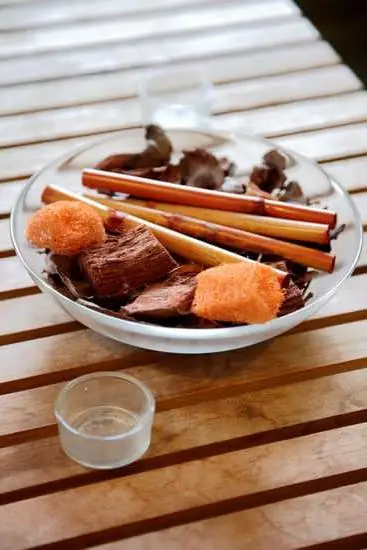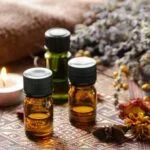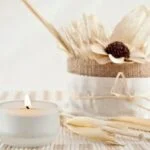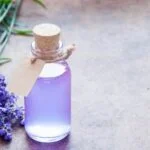If you’re looking to explore the world of aromatherapy, you may have come across the idea of using a medical nebulizer for your DIY aromatherapy needs. A medical nebulizer is a device commonly used to administer medication in the form of a mist that is inhaled into the lungs.
But can it also be used for aromatherapy? In this article, we will delve into the topic of using medical nebulizers for DIY aromatherapy and explore its benefits, safety considerations, proper usage, potential risks, and alternative options.
Medical nebulizers are widely used in healthcare settings to deliver medication directly to the respiratory system, making them a convenient and effective tool for patients with respiratory conditions. On the other hand, aromatherapy involves using essential oils and their therapeutic properties to promote physical and emotional well-being. While they serve different purposes, some individuals have been curious about whether a medical nebulizer can be repurposed for aromatherapy use at home.
In this article, we will discuss the differences between medical and aromatherapy nebulizers, safety considerations when repurposing a medical nebulizer for DIY aromatherapy, the benefits of utilizing a medical nebulizer for aromatherapy purposes, proper usage techniques, recommended essential oils for aromatherapy nebulizers, potential risks and side effects to be aware of when using a medical nebulizer for aromatherapy and alternative options available. Stay tuned as we explore this intriguing topic further.
Understanding the Difference Between Medical and Aromatherapy Nebulizers
Medical nebulizers and aromatherapy nebulizers serve different purposes even though they may look similar in design. Medical nebulizers are specifically designed to convert liquid medication into a mist that is inhaled into the lungs to treat respiratory conditions such as asthma, COPD, or cystic fibrosis. On the other hand, aromatherapy nebulizers are designed to disperse essential oils into the air for therapeutic purposes such as relaxation, stress relief, or improving sleep quality.
One of the main differences between medical and aromatherapy nebulizers is the type of substances they are intended to work with. Medical nebulizers are meant to be used with prescribed medications only, while aromatherapy nebulizers are made for use with essential oils. Additionally, medical nebulizers often come with specific instructions and dosage guidelines for medication administration, while aromatherapy nebulizers are more focused on creating a pleasant and fragrant environment.
It is important to note that using a medical nebulizer for DIY aromatherapy purposes may not be safe or effective. Medical nebulizers have been calibrated and tested for specific medications at specific dosages. Using them for dispersing essential oils may lead to incomplete vaporization of the oil particles or could potentially damage the device. It is always best to use each device as directed by the manufacturer to ensure safety and efficacy.
| Medical Nebulizer | Aromatherapy Nebulizer |
|---|---|
| Intended for respiratory medications | Intended for dispersing essential oils |
| Calibrated for specific dosages | Focuses on creating a pleasant environment |
| May not effectively vaporize essential oils | May damage device if used improperly |
Safety Considerations When Using Medical Nebulizers for Aromatherapy
Using a medical nebulizer for DIY aromatherapy can be an effective way to experience the benefits of essential oils. However, it is important to consider safety considerations when using medical nebulizers for this purpose. Here are some key points to keep in mind:
Safety Considerations:
1. Cleanliness: It is crucial to clean the medical nebulizer thoroughly before using it for aromatherapy purposes. Residue from medications can interact with essential oils and may cause adverse effects.
2. Dilution: When using essential oils in a medical nebulizer, it is important to dilute them properly with a carrier oil or water, especially if you have respiratory issues or sensitive skin.
3. Compatibility: Not all essential oils are suitable for use in a medical nebulizer. Some oils may be too thick and could clog the device, while others may be too harsh when inhaled.
It’s important to always follow the manufacturer’s instructions and consult with a healthcare professional before using a medical nebulizer for aromatherapy, especially if you have any underlying health conditions. By taking these safety considerations into account, you can enjoy the benefits of aromatherapy while using a medical nebulizer safely and effectively.
Benefits of Using Medical Nebulizers for Aromatherapy
The benefits of using medical nebulizers for aromatherapy are numerous and can greatly enhance the overall experience and effectiveness of aromatherapy treatment. While traditional methods of diffusing essential oils, such as using a diffuser or applying topically, can be effective, medical nebulizers offer unique advantages that make them an attractive option for aromatherapy enthusiasts.
Enhanced Aromatherapeutic Effects
One of the primary benefits of using a medical nebulizer for aromatherapy is the enhanced delivery method it provides. Medical nebulizers convert essential oils into a fine mist, allowing for easy inhalation and absorption into the respiratory system. This direct delivery method allows for faster and more efficient absorption of the therapeutic properties of essential oils, resulting in more immediate and profound effects on both the body and mind.
Personalized and Targeted Treatment
Another benefit of using medical nebulizers for aromatherapy is the ability to customize and target treatment based on individual needs. With a medical nebulizer, users can easily adjust the intensity and duration of inhalation, as well as mix different essential oils to create personalized blends for specific therapeutic purposes. This level of control allows for a more tailored approach to aromatherapy treatment, ensuring that individuals can address their unique health concerns and preferences with precision.
Convenience and Portability
Medical nebulizers are also known for their convenience and portability, making them an ideal option for those who lead busy lifestyles or travel frequently. Unlike traditional diffusers that require electricity or open flames, medical nebulizers operate on battery power or rechargeable options, allowing users to enjoy aromatherapy anywhere at any time. Their compact size makes them easy to carry in a purse or bag, providing access to therapeutic benefits on the go.
Ultimately, the use of medical nebulizers for aromatherapy offers multiple advantages that can enhance the overall efficacy and enjoyment of essential oil treatments. Whether seeking targeted relief from specific symptoms or simply looking to elevate the sensory experience of aromatherapy, utilizing a medical nebulizer can provide an effective and convenient solution for achieving wellness through essential oils.
How to Properly Use a Medical Nebulizer for Aromatherapy
Using a medical nebulizer for DIY aromatherapy can be a convenient and effective way to enjoy the benefits of essential oils. To properly use a medical nebulizer for aromatherapy, you will need to follow a few simple steps.
First, it’s important to ensure that your medical nebulizer is clean and free of any medication residue. Thoroughly wash and dry the nebulizer according to the manufacturer’s instructions before using it for aromatherapy. This will help prevent any potential interactions between medications and essential oils.
Next, add your chosen essential oil to the nebulizer according to the recommended dosage. It’s important to use high-quality, pure essential oils to avoid any potential impurities or chemicals that could be harmful when inhaled.
Once the essential oil is added, assemble the nebulizer according to the manufacturer’s instructions and ensure that it is set up correctly. Then, turn on the nebulizer and inhale the fine mist that is emitted. It’s important not to directly inhale from the mouthpiece of the nebulizer, but rather allow the mist to disperse into the surrounding air for inhalation.
Table: Benefits of Using Medical Nebulizers for Aromatherapy
| Benefit | Description |
|---|---|
| Efficient Delivery | The fine mist produced by medical nebulizers allows for optimal absorption of essential oils into the respiratory system. |
| Clean Inhalation | Nebulizers deliver essential oils without heat or dilution, ensuring that the therapeutic properties of the oils remain intact. |
| Customizable Dosage | Medical nebulizers allow for precise control over the amount of essential oil used, allowing for personalized aromatherapy experiences. |
Recommended Essential Oils for Aromatherapy Nebulizers
When it comes to using essential oils with a medical nebulizer for DIY aromatherapy, it is important to choose the right oils for the best results. Here are some recommended essential oils that you can use with your aromatherapy nebulizer:
- Lavender oil: Known for its calming and relaxing properties, lavender oil is great for reducing stress and anxiety.
- Peppermint oil: With its invigorating scent, peppermint oil can help with mental clarity and alertness.
- Eucalyptus oil: This oil is excellent for respiratory issues and can help clear the airways and promote easier breathing.
- Tea tree oil: With its antibacterial and antiviral properties, tea tree oil is great for purifying the air and boosting the immune system.
These essential oils are just a few examples of the many options available for use with aromatherapy nebulizers. It is important to choose high-quality, pure essential oils to ensure optimal results. Additionally, make sure to consider any allergies or sensitivities when selecting essential oils for your aromatherapy sessions.
When using a medical nebulizer for aromatherapy, it is important to follow proper usage guidelines to ensure safety and effectiveness. Here are some tips on how to properly use a medical nebulizer for aromatherapy:
- Choose a well-ventilated area for your aromatherapy session.
- Place the recommended amount of essential oil into the nebulizer chamber.
- Attach the mask or mouthpiece to the nebulizer and turn it on.
- Breathe in slowly and deeply through the mouthpiece or mask to inhale the aromatic mist.
- Use the nebulizer for the recommended amount of time according to the instructions provided with your specific device.
By following these guidelines and using recommended essential oils, you can enjoy the benefits of aromatherapy with a medical nebulizer while ensuring safety and effectiveness.
Potential Risks and Side Effects of Using Medical Nebulizers for Aromatherapy
While using a medical nebulizer for aromatherapy can be beneficial, it’s important to be aware of the potential risks and side effects that may arise from this practice. Understanding these risks will help individuals make informed decisions about incorporating aromatherapy into their medical nebulizer routines.
Possible Irritation and Allergic Reactions
One potential risk of using medical nebulizers for aromatherapy is the possibility of irritation or allergic reactions. Some essential oils, when inhaled through a nebulizer, can cause respiratory discomfort, throat irritation, or allergic reactions in sensitive individuals. It’s essential to carefully research and test different essential oils before using them in a medical nebulizer to ensure they do not cause adverse effects.
Risk of Overexposure
Using a medical nebulizer for aromatherapy may also pose the risk of overexposure to essential oils. Unlike traditional aromatherapy diffusers that release diluted essential oil particles into the air, a nebulizer releases concentrated droplets directly into the lungs. Prolonged or excessive exposure to certain essential oils through a medical nebulizer can lead to unwanted side effects such as headaches, dizziness, nausea, or respiratory issues.
Potential Interference With Medications
Another concern when using medical nebulizers for aromatherapy is the potential interference with medications. Some essential oils used in aromatherapy may interact with prescription medications when inhaled through a nebulizer, leading to unexpected side effects or reduced effectiveness of medications. It’s crucial for individuals with pre-existing health conditions or those taking medications to consult with their healthcare provider before integrating aromatherapy into their medical nebulizer routine.
Alternatives to Using Medical Nebulizers for Aromatherapy
While using a medical nebulizer for DIY aromatherapy can be effective, there are also alternative methods for experiencing the benefits of aromatherapy. One popular alternative to using a medical nebulizer is using a diffuser.
A diffuser works by dispersing essential oils into the air in the form of mist or vapor, allowing you to inhale the aromatic benefits of the oils. There are various types of diffusers available, such as ultrasonic, heat, evaporative, and nebulizing diffusers, each with its own unique way of dispersing essential oils.
Another alternative to using a medical nebulizer for aromatherapy is creating your own room or linen spray. This method involves diluting essential oils with water and alcohol and then spraying the mixture into the air or onto linens and fabrics. Room and linen sprays can help freshen up a space while also providing the aromatic benefits of the essential oils used.
Additionally, using an inhaler stick or personal inhaler is another alternative to consider when exploring aromatherapy without a medical nebulizer. These portable devices allow you to inhale essential oil blends directly through your nose, providing targeted aromatherapy benefits wherever you go.
Exploring alternatives to using a medical nebulizer for aromatherapy can provide flexibility and convenience in experiencing the therapeutic effects of essential oils. Each alternative method offers its own unique way of dispersing and inhaling essential oils for relaxation, mood enhancement, and overall well-being. Whether it’s through diffusers, room sprays, or personal inhalers, there are countless ways to incorporate aromatherapy into your daily routine without necessarily needing a medical nebulizer.
Conclusion and Final Thoughts on Using Medical Nebulizers for Diy Aromatherapy
In conclusion, the use of medical nebulizers for DIY aromatherapy can be a convenient and effective way to enjoy the therapeutic benefits of essential oils. While traditional aromatherapy nebulizers are designed specifically for this purpose, medical nebulizers can also be repurposed for aromatherapy with proper consideration of safety and usage guidelines. It is important to understand the difference between medical and aromatherapy nebulizers, as well as the potential risks and side effects associated with using medical nebulizers for aromatic purposes.
When considering using a medical nebulizer for DIY aromatherapy, it is crucial to prioritize safety. This includes thoroughly cleaning the nebulizer before and after each use, being mindful of proper essential oil dilution ratios to avoid respiratory irritation, and consulting with a healthcare professional if you have any underlying health conditions or concerns. Additionally, it’s important to choose essential oils that are safe for inhalation and suitable for use in a nebulizer.
While there are alternative methods for enjoying the benefits of aromatherapy, such as diffusers and topical application, using a medical nebulizer for DIY aromatherapy can offer a more direct and potent delivery of essential oils into the respiratory system. Ultimately, with proper knowledge and caution, incorporating a medical nebulizer into your aromatherapy practice can provide an accessible and efficient way to experience the therapeutic effects of essential oils.
Frequently Asked Questions
Is It Safe to Put Essential Oils in a Nebulizer?
It is not recommended to put essential oils in a nebulizer, as they are usually designed for medications and saline solutions. Essential oils may clog the nebulizer and damage its components.
Does a Nebulizer Work Like a Diffuser?
A nebulizer and a diffuser work differently. While a diffuser releases essential oils into the air in the form of vapor or mist, a nebulizer turns liquid medication into a fine mist that can be inhaled directly into the lungs.
Can I Put Herbs in a Nebulizer?
Putting herbs in a nebulizer is not advisable, as it is designed to deliver medication in the form of a mist for inhalation. Using herbs may clog the nebulizer or cause complications if inhaled directly into the lungs.

Are you looking for a natural way to improve your health and wellbeing?
If so, aromatherapy may be the answer for you.





